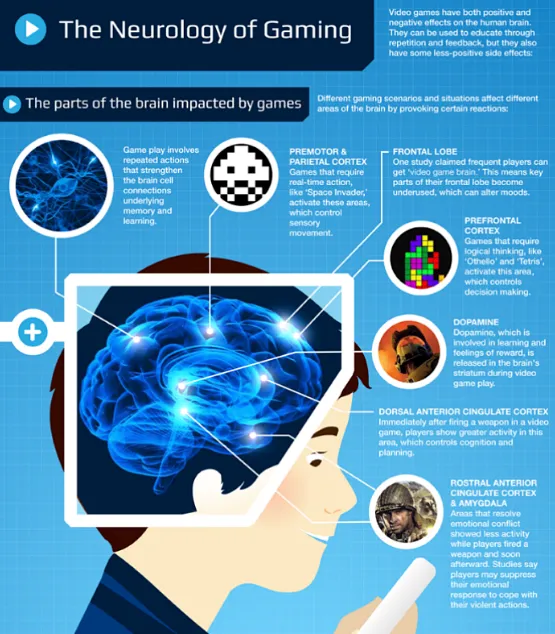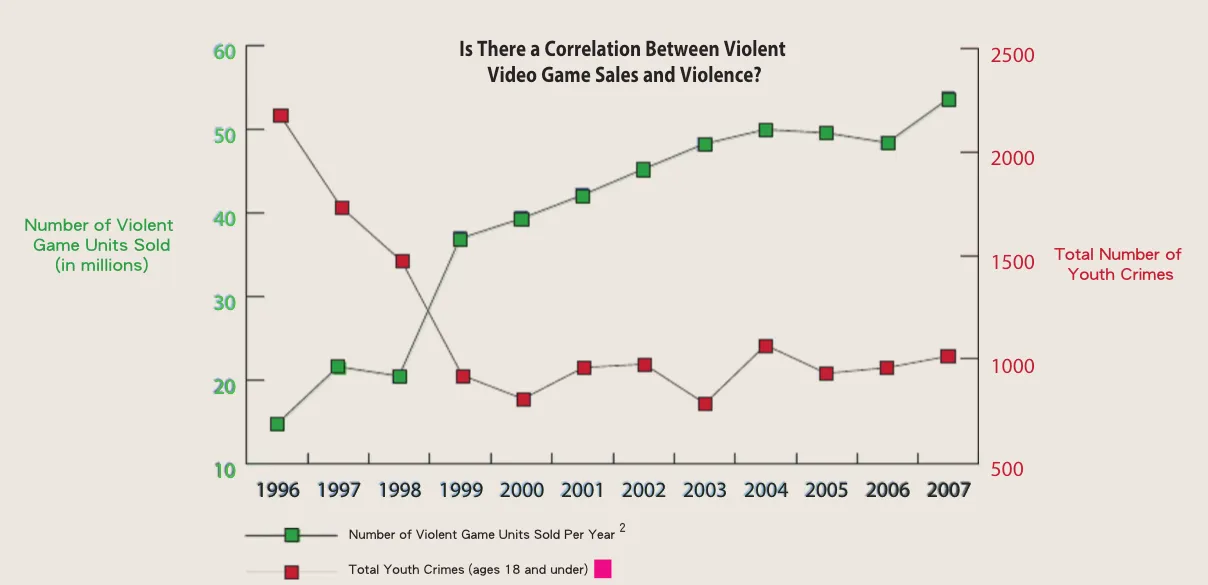
We've all heard this news story a thousand times: Violent video games are dangerous, they promote violent behaviour and increase crime rates.
But other studies show the exact opposite - violence in video games could actually reduce violence in the real world!
Increased Violence?
It sounds totally logical - violent games promote violence, they make the gamer feel like shooting things / people was normal , they make people more aggressive and they tend to pursue crimes in real life after that.
They set a bad example and encourage people to act violently as well.
Many studies have proven that this is true - but the problem seems to be that the studies were looking at short-term effects, and not long-term ones.
Long-term effects have actually come to mixed results in this matter.

Decreased Violence?
New studies have shown that violent video games might not have the same impact on real-life crime that we always assumed.
A study from January 2016 analyzed the crime rates shortly after popular, violent video games had been released.
Surprisingly, those statistics showed a decrease in the weeks after the releases!
And this wasn't just one time - the same result could be proven multiple times.
When violent video game sales increased for 10%, crime rate decreased 0.3% - a decrease that was not found wihen comparing to non-violent video game sales.
This effect was actually not only shown in video game sales, but also for violent movies.
Crime rates decreased 1.1% for every 1 million people that watched a violent movie.

What's the reason for this paradox?
Obviously this is only a theory and experts are still arguing over this.
But some suggest that people who are attracted to violence or aggression are also more attracted by violent media.
So when a violent video game comes out, those people will tend to be more occupied and play the game instead of committing real-life crimes.
Of course, this is very simplified and it certainly doesn't mean that this theory is the answer to this whole debate.
But still, one can't deny the statistics, and this theory also makes quite a lot of sense.
It's not only that people are occupied - maybe they also use gaming as a way to express their negative emotions, instead of acting aggressively in real life.
Also, these games make the player happier, and can even promote social interaction since there are often multiplayer modi in these kinds of games.
Conclusion
The conclusion is that you could probably find arguments, studies and examples for both sides.
This is definitely a tricky topic, and there's no easy way to figure out which theory is right and which one isn't.
In the end, it all depends on how you look at it and what you personally think has more of an impact.
What's your personal opinion about this topic ?!
Images: 1, 2, 3, Sources: 1, 2, 3, 4, 5, 6
- Instagram -

© Sirwinchester
